Comprehensive Guide to Garden Maintenance in Upminster
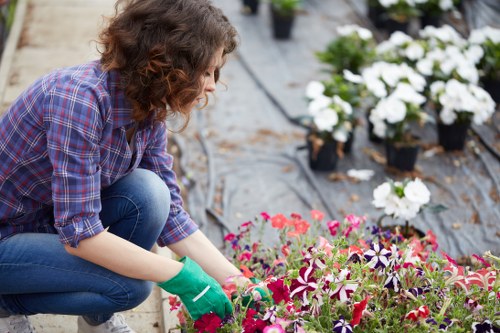
Maintaining a beautiful garden in Upminster requires a combination of regular care, proper planning, and the right tools. Whether you're a seasoned gardener or a beginner, understanding the essentials of garden maintenance can help you achieve a lush and thriving outdoor space.
Upminster's climate, characterized by mild winters and warm summers, is ideal for a variety of plants. However, it also presents unique challenges that homeowners must navigate to keep their gardens in optimal condition.
In this article, we will explore the key aspects of garden maintenance, including soil preparation, plant selection, pruning techniques, pest control, and seasonal care. By following these guidelines, you can ensure your garden remains a vibrant and inviting part of your home.
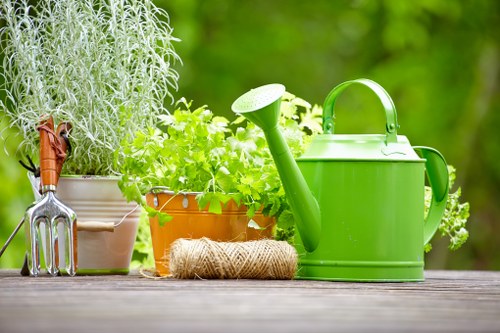
Soil Preparation and Fertilization
Healthy soil is the foundation of a thriving garden. In Upminster, the soil quality can vary, so it's essential to test your soil's pH and nutrient levels before planting.
Testing and Amending Soil
Use a soil testing kit to determine the acidity or alkalinity of your soil. Most plants prefer a neutral pH between 6.0 and 7.0. If your soil is too acidic, adding lime can help raise the pH. Conversely, if it's too alkaline, sulfur can lower the pH.
Incorporate organic matter, such as compost or well-rotted manure, to improve soil structure and fertility. This not only enhances nutrient availability but also promotes beneficial microbial activity.
Choosing the Right Fertilizer
Select a balanced fertilizer that provides essential nutrients like nitrogen, phosphorus, and potassium. For perennial beds, consider slow-release fertilizers to provide a steady supply of nutrients throughout the growing season.
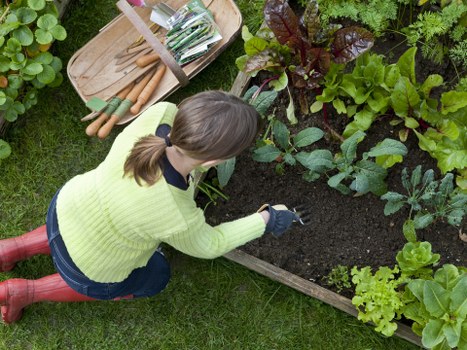
Plant Selection and Landscaping
Choosing the right plants is crucial for successful garden maintenance. In Upminster, consider native plants that are well-suited to the local climate and soil conditions.
Native vs. Non-Native Plants
Native plants typically require less water, fewer fertilizers, and minimal pest control, making them a sustainable choice. They also support local wildlife, contributing to a balanced ecosystem.
However, non-native plants can add unique colors and textures to your garden. Ensure that they are not invasive and are compatible with your garden's environment.
Designing Your Garden Layout
Plan your garden layout based on sunlight exposure, plant height, and blooming seasons. Group plants with similar water and light requirements together to simplify maintenance.
Creating Focal Points
Incorporate features like flower beds, shrubs, or ornamental trees to create focal points. These elements add visual interest and can guide the flow of movement through your garden.
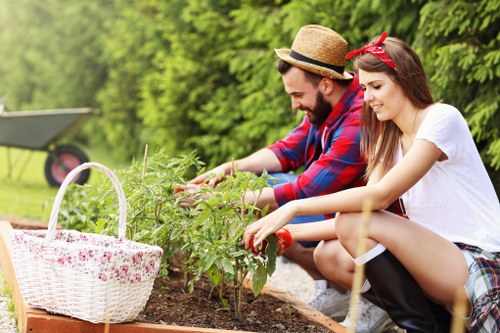
Pruning and Trimming Techniques
Regular pruning is essential for maintaining plant health and appearance. Proper trimming encourages robust growth and prevents diseases.
When to Prune
The best time to prune most plants is during the dormant season, typically in late winter or early spring. However, some flowering plants benefit from pruning after they bloom.
Always use sharp, clean tools to make precise cuts. Remove any dead, diseased, or damaged branches to promote healthy growth.
Pruning Different Plant Types
Trees, shrubs, and perennials each require specific pruning techniques. For example, fruit trees need thinning to allow sunlight penetration, while roses benefit from shaping to encourage blooms.
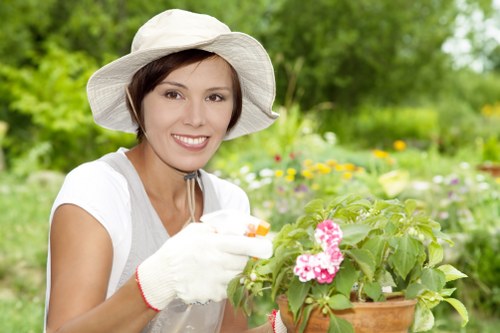
Pest and Disease Management
Protecting your garden from pests and diseases is a critical aspect of maintenance. Early detection and proactive measures can prevent minor issues from escalating.
Common Pests in Upminster
Watch out for common garden pests such as aphids, slugs, and snails. These can damage plants by feeding on leaves, stems, and fruits.
- Aphids: Use insecticidal soap or introduce natural predators like ladybugs.
- Slugs and Snails: Implement barriers like copper tape or use organic repellents.
- Fungal Diseases: Ensure proper spacing for air circulation and avoid overhead watering to reduce the risk of mold and mildew.
Integrated Pest Management (IPM)
Adopt an Integrated Pest Management approach by combining biological, cultural, and chemical methods. This minimizes the impact on beneficial insects and the environment.
Organic Solutions
Whenever possible, opt for organic pest control solutions. Neem oil, diatomaceous earth, and companion planting can effectively manage pests without harming your garden's ecosystem.
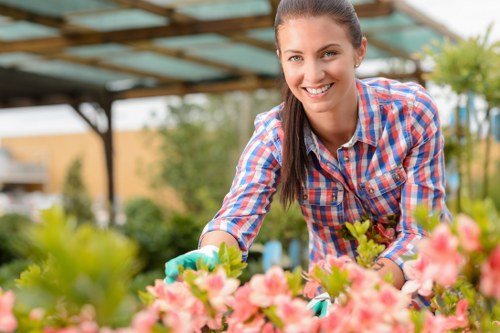
Seasonal Garden Care
Each season brings unique challenges and tasks for garden maintenance. Adapting your care routine to the changing seasons ensures year-round garden health.
Spring
Spring is the time for planting new blooms, fertilizing, and preparing garden beds. Remove any winter debris and perform a thorough soil check.
Summer
Focus on irrigation, pruning, and pest control during the hot summer months. Mulching can help retain soil moisture and regulate temperature.
Autumn
In autumn, clean up fallen leaves, plant bulbs for spring, and prepare plants for the cooler months. This is also an ideal time for composting organic matter.
Winter
Protect sensitive plants from frost, plan your garden layout for the upcoming year, and perform tool maintenance. While gardens appear dormant, underlying care ensures a healthy start in spring.
Essential Tools for Garden Maintenance
Having the right tools makes garden maintenance more efficient and enjoyable. Invest in quality equipment to ensure longevity and ease of use.
Basic Gardening Tools
- Pruning Shears: For trimming and shaping plants.
- Hand Trowel: Essential for planting and soil preparation.
- Garden Hoe: Useful for weeding and cultivating soil.
- Watering Can or Hose: For consistent irrigation.
Advanced Tools
For larger gardens, consider power tools like lawnmowers, leaf blowers, and hedge trimmers. These tools save time and reduce physical strain.
Tool Maintenance
Regularly clean and sharpen your tools to maintain their effectiveness. Proper storage prevents rust and extends the lifespan of your gardening equipment.
Sustainable Gardening Practices
Adopting sustainable practices not only benefits the environment but also enhances the resilience of your garden.
Water Conservation
Implement rainwater harvesting systems and use drip irrigation to minimize water waste. Mulching also helps retain moisture in the soil.
Composting
Recycle kitchen scraps and garden waste by creating a compost pile. Compost enriches the soil with organic matter and reduces the need for chemical fertilizers.
Native Planting
As mentioned earlier, native plants require fewer resources and support local biodiversity. Incorporate a variety of native species to create a balanced ecosystem.
Pollinator Gardens
Create habitats for pollinators like bees, butterflies, and birds. Plant flowers that provide nectar and pollen, and avoid using harmful pesticides.
Hiring Professional Garden Maintenance Services
While DIY garden maintenance can be fulfilling, hiring professionals in Upminster offers expertise and saves you time.
Benefits of Professional Services
- Expert Knowledge: Professionals understand local plant species, soil conditions, and climate nuances.
- Time-Saving: Outsourcing maintenance tasks allows you to enjoy your garden without the stress of upkeep.
- Comprehensive Care: Professionals offer a range of services, including landscaping, pest control, and seasonal maintenance.
Choosing the Right Service
Look for reputable garden maintenance companies in Upminster with positive reviews and a portfolio of completed projects. Ensure they offer services tailored to your specific garden needs.
Cost Considerations
While professional services come at a cost, consider it an investment in the longevity and beauty of your garden. Obtain multiple quotes and compare offerings to find the best value.
Contact Us Today
If you're looking to transform or maintain your garden in Upminster, contact us today to schedule a consultation with our expert gardeners. Let us help you create the outdoor oasis you've always dreamed of.
